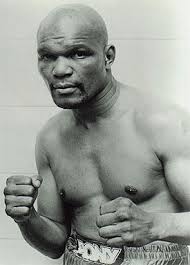Bennie Briscoe: Teddy Mann, Life After Boxing & Death Part II
At this defeat by Valdes, Bennie did what a Philadelphia warrior would be expected to do, shrugged his shoulders, and carried on pushing forward. Over the next three years Bad Bennie continued to take on anyone who would face him, which wasn’t always easy and meant that Briscoe often had to take the short end of purses in order to entice opponents to face him. Amongst Briscoe’s victories at this time were wins over Stanley ’Kitten’ Hayward, Eugene Hart, and future World light-heavyweight champion, Eddie Mustafa Muhammad. Briscoe also fought draws during this time with Vinnie Curto, Willie Warren and Emile Griffith.
Through it all, Briscoe stayed at or around the top of the world rankings. But, despite retaining his status as one of the premier contenders for the world title, Briscoe had to wait until the 1977 retirement of world champion Carlos Monzon (who had regained the WBC portion of the title with two victories over Rodrigo Valdes) before he got another chance of becoming world champion. On November 5, 1977, Bad Bennie met Valdes for the 3rd time, in order to decide the winner of the now vacant WBA and WBC world middleweight titles. It was another classic contest between the two, but without quite the fire of their first two bouts. This time Valdes boxed and counterpunched his way to a 15 round point’s victory. His movement and slick combinations kept him a slight step ahead of Bennie, and allowing him once more to deny the Philadelphian the world championship. After this third, and final shot, defeat for a world’s championship, something seems to have gone out of Briscoe. This should not be surprising, as Briscoe had been campaigning for over 15 years, most of it in the frontline against the very best. He was now past 34 years of age and perhaps resigned to the fact that he would never reach the pinnacle of his profession…the world championship. In the remaining five years of his career, Briscoe went 8-9. He was still fighting the best, but the losses were coming more often. His defeats included losses to future World middleweight champions Vito Antuofermo and Marvin Hagler, two fights in which Briscoe gave, as good as he got at times, but was unable to sustain any advantage long enough to claim victory. Then there were close, and debatable, losses to David Love, Richie Bennett, Clement Tshinza, and Vinnie Curto.
However, even taking into account the level of his competition, and the narrowness of some of his defeats, there was no denying that by 1980 Bad Bennie had slowed down. While still formidable, he was like a once smooth-running machine, now, sluggish, and prone to misfires. The familiar march forward had become a slow trudge.
There were still some sparks of brilliance from the fading Briscoe. These included his 1979 point’s win over the young, rugged prospect, Teddy Mann, a 1980 revenge point’s win over Richie Bennett, (after losing to Bennett some months earlier), and on March 23, 1982, an upset 5th round stoppage victory, over another prospect looking to use him as a stepping stone, Norbeto Sabater. The Sabater victory was Bennie’s last. Three months later, he dropped a close split-decision to Ralph Hollett, in Nova Scotia Canada. Six months later, on December 15, 1982, Bennie fought Jimmy Sykes at the Blue Horizon, Philadelphia. Bad Bennie started fast, but then seemed to tail off, and be happy just to jab with Sykes. After 10 rounds, Sykes was the winner on points, having been adjudged to have outworked Briscoe. This defeat seemed to convince Briscoe that at almost 40 years of age, and after over 20 years as a professional, his fighting spark was finally gone. He never fought again. Briscoe’s final record was (66-24-5, 53kos).
Unfortunately, even after all the years, and all the fights, and his star status as a top contender and favourite performer, Briscoe was not set up for life when he retired. The last years of his career were overshadowed by Briscoe falling out with his long time promoter J. Russell Peltz and manager Arnold Weiss (who was Peltz’s brother in law) after Briscoe declined to renew their contract. Although Briscoe earned an estimated 1.5 million dollars, when he looked at his bank accounts near the end of his career, he had just 30,000 dollars spread over three accounts.
In his retirement, Briscoe worked as a garbage collector and generally kept a low profile. Bad Bennie died in 2010, at the age of 67.
It’s almost a cliché today to pick out certain fighters of the past and say, “if they had been boxing today, then they almost certainly would be world champions.”
However, with Briscoe, this is no empty cliché, but a stark fact. Briscoe fought at a time where a fighter had to be special just to get himself into contendership. It’s hard to see Briscoe fighting in today’s climate of more ‘world champions’ than genuine contenders, and not picking up a big handful of titles for himself. Although he never won a world title, Briscoe will always be remembered as one of the best middleweights in the world, during a time when the middleweights (and boxing in general) was steaming with talent; when the middleweights were ’bad’ and Briscoe, one of the baddest of them all.
Bad Bennie’s legend lives on, John DiSanto, who runs the Philadelphia Boxing History website, came up a few years ago, with the idea of awarding ’Bennies’ which are small bronze statues of Briscoe, that are awarded to Philadelphia fighters, for fights of the year, and fighter of the year. Over 30 years since his last professional contest, and despite his not being talked about today as much as he should be, Bennie Briscoe remains a legend in Philadelphia.
RSR is NOW Hiring Boxing Writers


